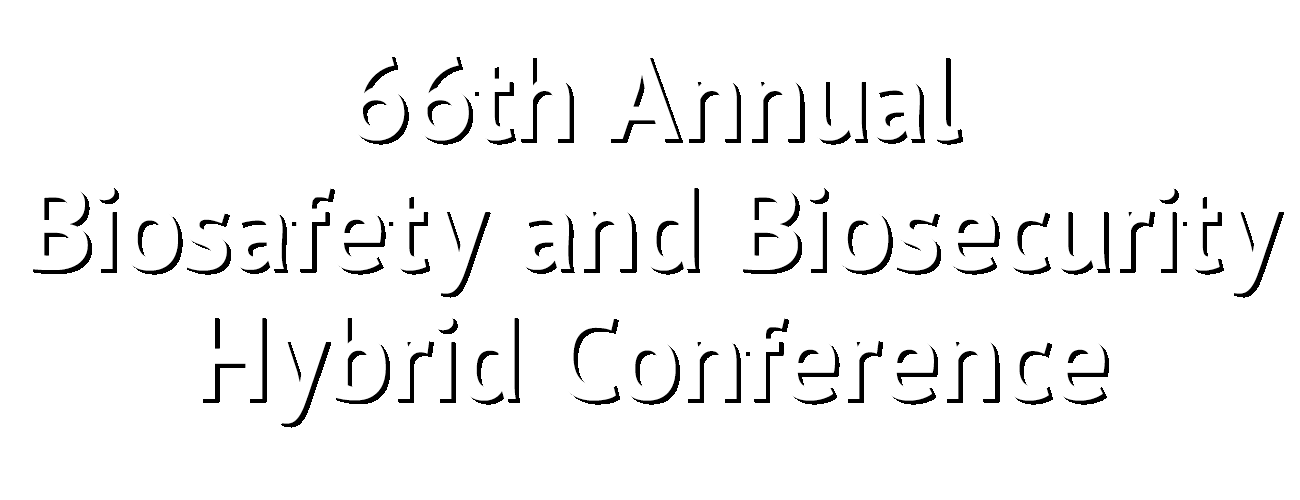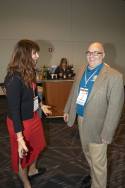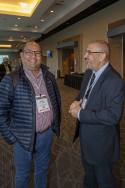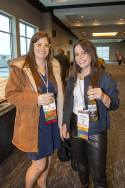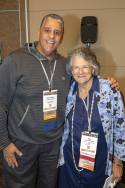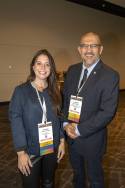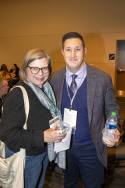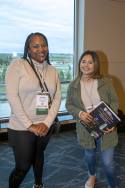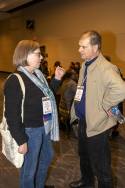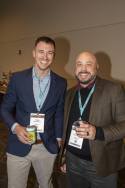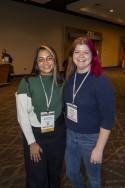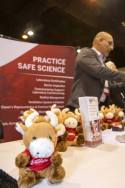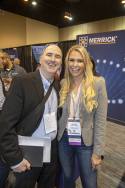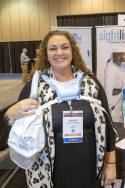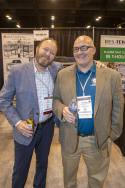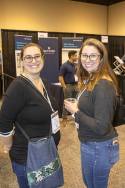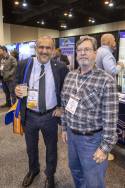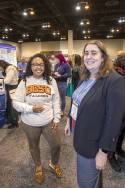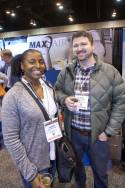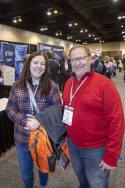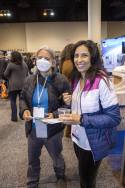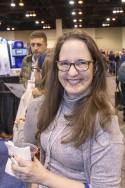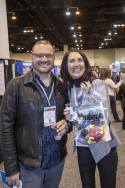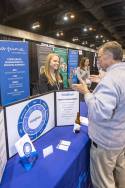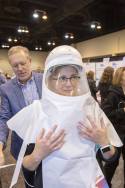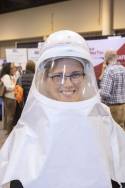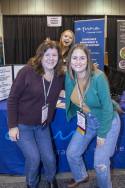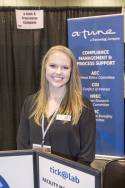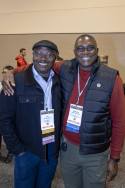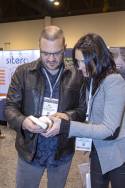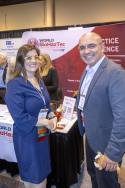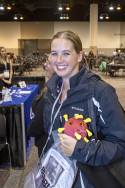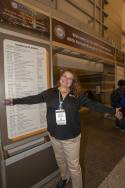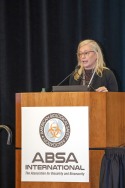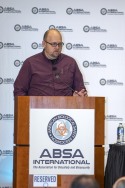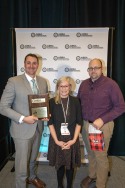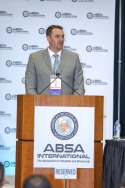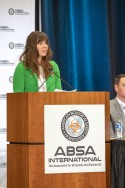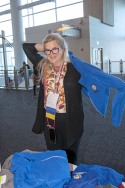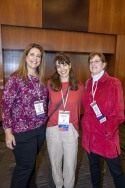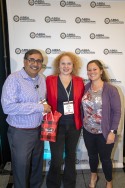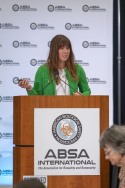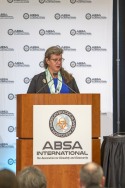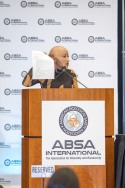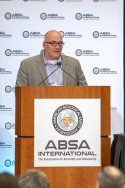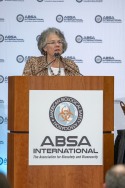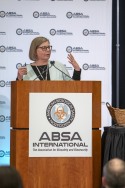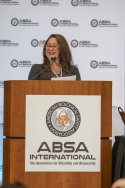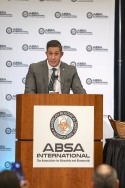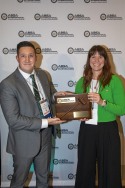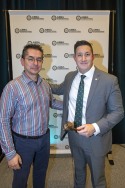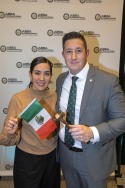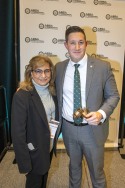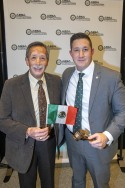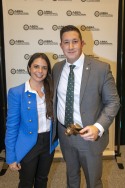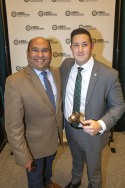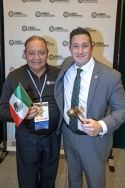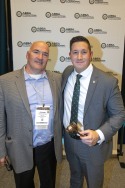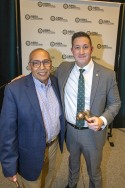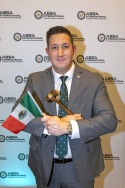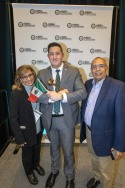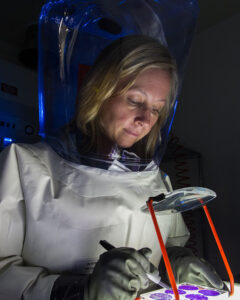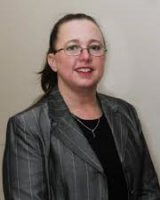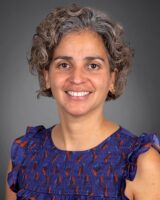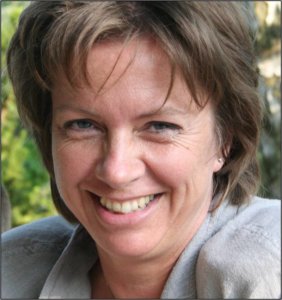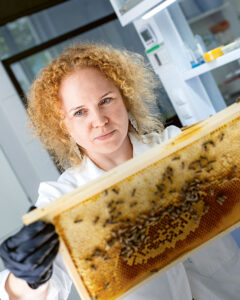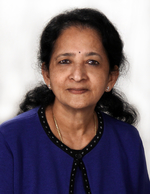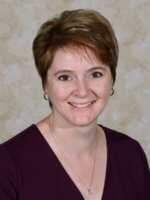66th Annual Biosafety and Biosecurity Hybrid Conference
Scientific Program
SUNDAY/MONDAY October 15/16
All times listed will be CENTRAL Standard Time
Sunday, October 15, 2023
6:30 – 8:30 pm Opening Reception in the Exhibit Hall
Monday, October 16, 2023
7:00 – 5:00 pm Registration
7:00 – 8:00 am Continental Breakfast in Foyer
9:00 – 4:00 pm Vendor Exhibits
8:00 – 8:15 am Welcome and ABSA International President’s Address
Master of Ceremonies: Rebecca Moritz, MS, CBSP(ABSA), SM(NRCM), Colorado State University, Fort Collins, CO
8:15 – 8:20 am Local Arrangements Committee Welcome
Matt Anderson, PhD, RBP(ABSA), CBSP(ABSA), University of Nebraska—Lincoln, Lincoln, NE
8:20 – 8:25 am Scientific Program Committee Welcome
AJ Troiano, PhD, RBP(ABSA), FUJIFILM Diosynth Biotechnologies, Boston, MA
Session I Arnold G. Wedum Memorial Lecture Award
Introduction: AJ Troiano, PhD, RBP(ABSA), FUJIFILM Diosynth Biotechnologies, Boston, MA
Moderator: Matt Anderson, PhD, RBP(ABSA), CBSP(ABSA), University of Nebraska—Lincoln, Lincoln, NE
8:25 – 9:15 am Mpox Outbreak: Preparedness Efforts, Laboratory Response and Ongoing Efforts
Christina L. Hutson, PhD, MS, Centers for Disease Control and Prevention, Atlanta, GA
9:15 – 9:25 am Q&A Session
9:25 – 10:00 am Exhibits, Posters, and Coffee Break
Session II Applied Biosafety
Moderators: Francine Rogers, MS, RBP(ABSA), CBSP(ABSA), SM(NRCM), Tufts University, Boston, MA
Rachel Gamble, DrPH, RBP(ABSA), CBSP(ABSA), Merrick & Company, Greenwood Village, CO
10:00 – 10:15 am Empirical Biosafety
Kelly Kim, MS, Gryphon Scientific, Takoma Park, MD
10:15 – 10:30 am Global Factors Influencing BSC Performance
Katlyn Montalbano, MPH, Sandia National Laboratories, Albuquerque, NM
10:30 – 10:45 am Findings of the RAV3N Applied BioRisk and Biosafety Gap Assessment Workshop
Kurt Zuelke, DVM, PhD, Texas A&M University, College Station, TX
10:45 – 11:00 am Q&A Session
Session III Continuous Improvement: Enhancing Your Biosafety Program
Moderators: Betsy Matos, PhD, CBSP(ABSA), Iowa State University, Ames, IA
Maya Nair, PhD, RBP(ABSA), University of North Texas Science Center, Fort Worth, TX
11:00 – 11:15 am Below the Iceberg: Safety and Compliance for Biomedical Research Review
Maren Schniederberend, PhD, RBP(ABSA), Yale University, New Haven, CT
11:15 – 11:30 am Biosafety Challenges for Rodent Gnotobiotic Facility
Peili Zhu, MD, PhD, RBP(ABSA), University of California—San Francisco, San Francisco, CA
11:30 – 11:45 pm Intentional and Unintentional Human Failures
Vibeke Halkjaer–Knudsen, PhD, Vipsit LLC, Helsinge, Denmark
11:45 – 12:00 pm Q&A Session
12:00 – 1:30 pm Exhibits, Posters, and Lunch
Session IV Poster Session
12:30 – 1:30 pm Presenters must be available during the session.
Session V Invited Speaker
Introduction: Susan Vleck, PhD, RBP(ABSA), CBSP(ABSA), Stanford University, Stanford, CA
Moderator: Noman Siddiqi, PhD, RBP(ABSA), Harvard School of Public Health, Boston, MA
1:30 – 2:20 pm Vaccination of Honeybee (Apis Mellifera) Against Brood Diseases: A Novel Approach to Prevent Spread of Infections
Dalial Freitak, PhD, Karl-Franzen University of Graz, Graz, Austria
2:20 – 2:30 pm Q&A Session
2:30 – 3:00 pm Exhibits, Posters, and Coffee Break
Session VI Public Health
Moderators: Julianne Baron, PhD, RBP(ABSA), Science and Safety Consulting, Venetia, PA
Kalpana Rengarajan, PhD, RBP(ABSA), Emory University, Atlanta, GA
3:00 – 3:15 pm The Role of Public Health Laboratories in the US to Meet Biosafety Preparedness Needs in Hospital and Clinical Laboratories
Anthony R. Sambol, MA, RBP(ABSA), CBSP(ABSA), SM(NRCM), University of Nebraska Medical Center, Omaha, NE
3:15 – 3:30 pm Implementation of an Outreach Program to Improve Laboratory Safety Worldwide
Aufra C. Araujo, PhD, Centers for Disease Control and Prevention, Atlanta, GA
3:30 – 3:45 pm Infection Control and Biosafety Taskforce
Corrie Ntiforo, MSPH, RBP(ABSA), University of Texas Medical Branch—Galveston, Galveston, TX
3:45 – 4:00 pm Q&A Session
Session VII Biosafety Perspectives: Ethics, Genetic Engineering, and Evolving Regulations
Moderators: Jessica McCormick-Ell, PhD, RBP(ABSA), CBSP(ABSA), National Institutes of Health, Bethesda, MD
Kelly Flint, RBP(ABSA), CBSP(ABSA), SM(NRCM), National Institutes of Health, Fort Detrick, MD
4:00 – 4:15 pm Editing the Building Blocks of Life: The Evolution of Genetic Engineering
Timo Alexander Kehl, PhD, German Cancer Research Center, Heidelberg, Germany
4:15 – 4:30 pm Areas of Consensus and Improvement on Dual–Use Research Risk, Ethics, and Oversight
Elika Somani, National Institutes for Health, Bethesda, MD
4:30 – 4:45 pm Never Say Never: Repeal of Prohibition on Import of LSDV Into Australia
James Thomas Paulley, PhD, Australian Centre for Disease Preparedness, East Geelong, Victoria, Australia
4:45 – 5:00 pm Q&A Session
5:00 – Close Members’ Business Meeting
Door prizes will be awarded—must be present to win.



